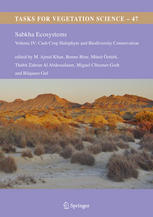

Most ebook files are in PDF format, so you can easily read them using various software such as Foxit Reader or directly on the Google Chrome browser.
Some ebook files are released by publishers in other formats such as .awz, .mobi, .epub, .fb2, etc. You may need to install specific software to read these formats on mobile/PC, such as Calibre.
Please read the tutorial at this link: https://ebookbell.com/faq
We offer FREE conversion to the popular formats you request; however, this may take some time. Therefore, right after payment, please email us, and we will try to provide the service as quickly as possible.
For some exceptional file formats or broken links (if any), please refrain from opening any disputes. Instead, email us first, and we will try to assist within a maximum of 6 hours.
EbookBell Team

0.0
0 reviewsSustainable development is the key for the survival in 21st century. The natural resources are finite and cannot be used with impunity because we are the custodian of these resources and have responsibility to pass these to the next generation. This monumental task requires several major commitments and most important of them is to arrest population explosion which has already reached seven billion. Natural resources like air to breath, food to eat, and water to drink, and fossil fuel to maintain this life style are being overexploited. Unrestrained consuming culture will accelerate undesired situation. This situation will have more dire consequences in resource limited ecosystems like dry lands. Given the severe scarcity of water, ever increasing population and soil salinization out of the box solutions for the provision of food and clean energy is required to spare meager fresh water resources for conventional agriculture. This volume contains a number of articles dealing with halophyte ecology, bio-geography, ecophysiology, hyper-saline soils, biofuels, biosaline agriculture, biosaline landscaping, climate change mitigation, and biodiversity. It also contains the communication of innovative ideas, such as the research into floating mangroves, seagrass terraces, as well as a World Halophyte Garden containing all known salt-tolerant plant species. It is hoped that the information provided will not only advance vegetation science, but that it will truly generate more interdisciplinarity, networking, awareness, and inspire farmers, and agricultural and landscaping stakeholders to seriously engage in halophyte cash crop production in coastal hyper-saline areas.